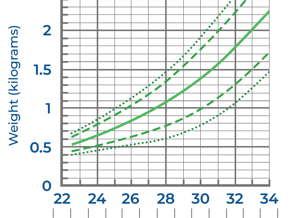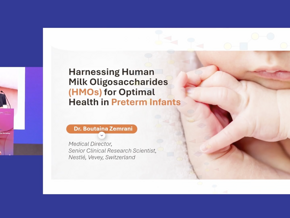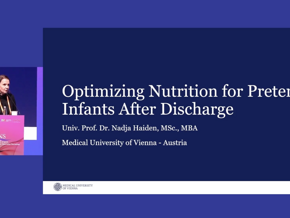Clinicians should consider daily DHA supplements during pregnancy to reduce early preterm birth: Study
Daily supplements of 1,000 mg of DHA during pregnancy may reduce the risk of early pre-term birth in women with low levels of the omega-3, says a new study. Women with higher levels of DHA (docosahexaenoic acid, C22:6 n-3) could also benefit from a 200 mg daily dose, according to data published in EClinicalMedicine.
“The findings here, combined with the most recent Cochrane Reviewand the results of ORIP [Omega-3 to Reduce the Incidence of Prematurity], have implications for both policy and practice,” wrote scientists led by Susan Carlson, PhD, from the University of Kansas Medical Center.
“Regarding policy, the National Academy of Medicine in the USA could now set a Dietary Recommended Intake for DHA in pregnancy, not possible before an amount of DHA could be linked to lower EPB [early pre-term birth]. Regarding clinical practice, clinicians could consider testing DHA status and offering high dose DHA supplementation to those with low DHA status.”
“Women with high DHA status at enrolment should be encouraged to take a prenatal with 200 mg DHA,” they added.
Dr Carlson and her co-workers noted that routine testing of DHA status is currently limited, and that “easy access to an inexpensive test of DHA status or a simple tool screener for DHA intake could help clinicians identify women most likely to benefit from a higher dose”.
Recommendations in Australia, but not the US
Commenting independently on the study’s findings, Harry Rice, PhD, VP of regulatory & scientific affairs for the Global Organization for EPA and DHA Omega-3s (GOED), told us: “The reduction in risk of preterm and early preterm birth is one of the most scientifically substantiated benefits associated with omega-3s.
“It's so substantiated that earlier this year, Australia's National Health and Medical Research Council (NHMRC) approved an update to the Australian Pregnancy Care Guidelines to include a recommendation for omega-3 supplementation if pregnant women are low in omega-3s. Results from Dr. Carlson and colleagues provide further corroboration of the benefits of omega-3s.
“Policy makers need to embrace the consistently positive data from trials like ADORE. From a public health perspective, it's unconscionable not to have an omega-3 recommendation for pregnant women.
“During the last commission of the United States Dietary Guidelines Advisory Committee, on three separate occasions, GOED submitted comments regarding the evidence used as the basis for the Australian recommendation,” added Dr Rice. “Unfortunately, the Committee failed to evaluate the evidence, and as a result, nothing was included in the Committee’s report which provided recommendations for the creation of the Dietary Guidelines for Americans.”
Pre-term birth
Dr Carlson has been studying the potential benefits of omega-3 supplementation during pregnancy for years, and led the Kansas University DHA Outcomes Study (KUDOS) that found that universal supplementation with DHA (600 mg per day) during the last two trimesters of pregnancy led to significant reductions in early preterm birth.
An economic analysis by the KUDOS team revealed that this would result in cost savings of $1,678 per infant. Taking out the $166.48 cost of the DHA supplements for 26 weeks and a $26 increase in maternal care costs, the net saving became $1,484.
For the nearly 4 million live births in the US every year this cost saving would become almost $6 million, reported the researchers in Prostaglandins, Leukotrienes and Essential Fatty Acids (Vol. 111, pp. 8–10).
Study details
For the new randomized, multicenter, double-blind trial, 1,100 women with singleton pregnancies and between 12 and 20 weeks gestation were recruited and randomly assigned to receive either 200 mg or 1,000 mg per day of DHA. The supplements used were Life's DHA-S oil, provided by DSM Nutritional Products.
Results showed that women receiving the higher dose has lower rates of early pre-term birth, particularly if women had low DHA levels at the start of the study. Specifically, for the women with low DHA levels at the start of the study, the observed EPB rate was 2.0% for the 1,000 mg dose, and 4.1% for the 200 mg dose.
Additional analysis revealed that there was no difference between EPB rates for the high and low doses for women with high DHA levels at the start of the study.
The researchers added that the higher dose was associated with fewer serious adverse events.
Commenting on the potential mechanism(s) of action, Dr Carlson and her co-workers noted that this remains elusive, but proposed that the anti-inflammatory derivates of DHA such as resolvins and maresins may play a role.
“We observed fewer cases of spontaneous preterm birth, which are known to be driven by inflammatory mechanisms, in the high compared to the low DHA dose group,” they wrote. “Because of this, we suggest that our finding of lower EPB with higher DHA supplementation could be due to a change in balance between n-3 and n-6 derived mediators to reduce or prevent the inflammatory process associated with labor.”
The study was funded by the National Institutes of Health Child Health and Human Development (NICHD).
Source: EClinicalMedicine(published by The Lancet)
Published online ahead of print, doi: 10.1016/j.eclinm.2021.100905
“Higher dose docosahexaenoic acid supplementation during pregnancy and early preterm birth: A randomised, double-blind, adaptive-design superiority trial”
Authors: S.E. Carlson et al.
If you liked this post you may also like



